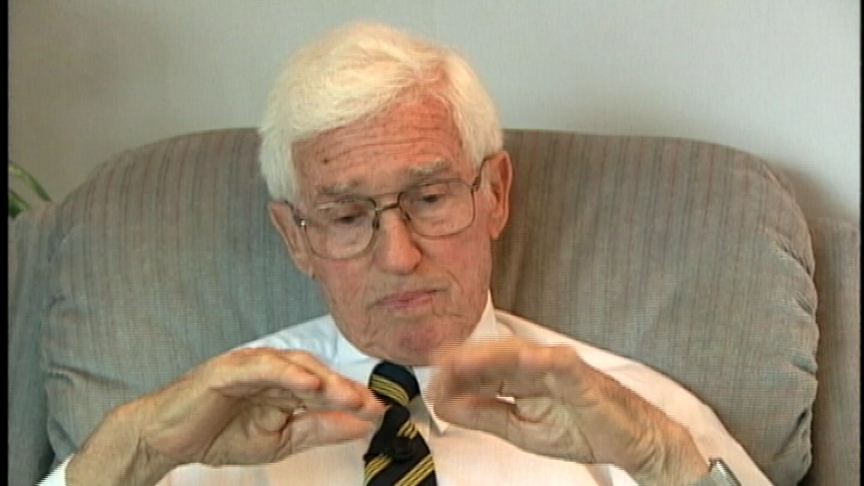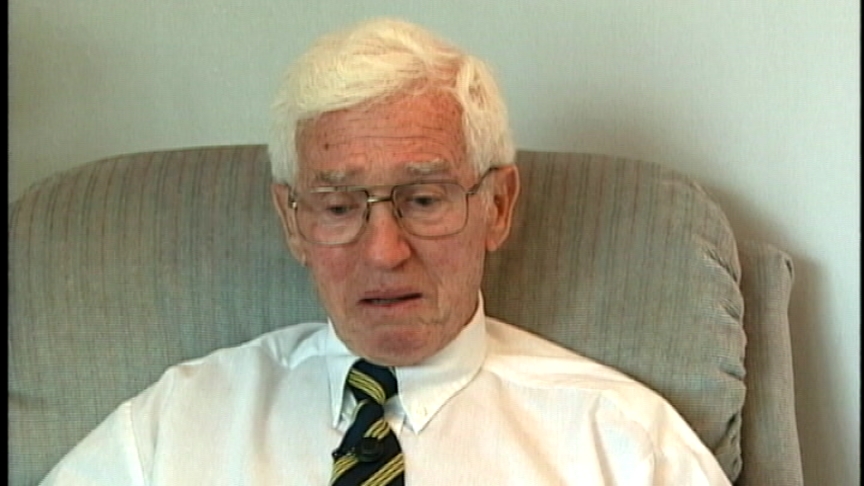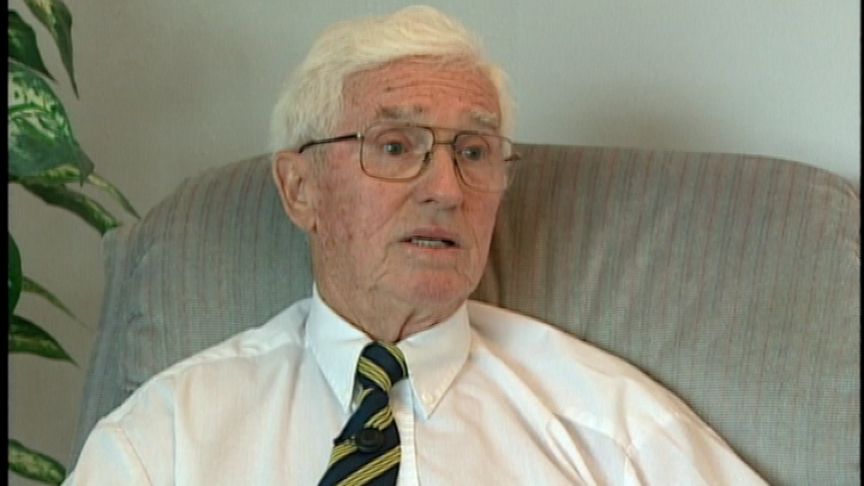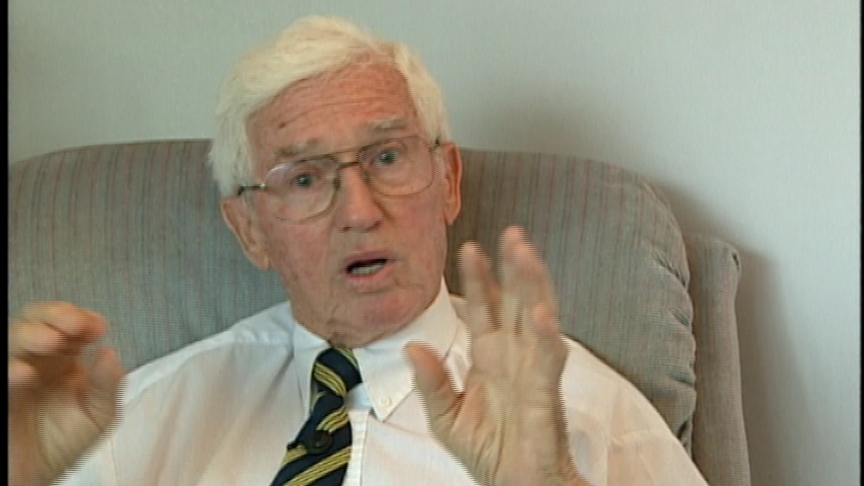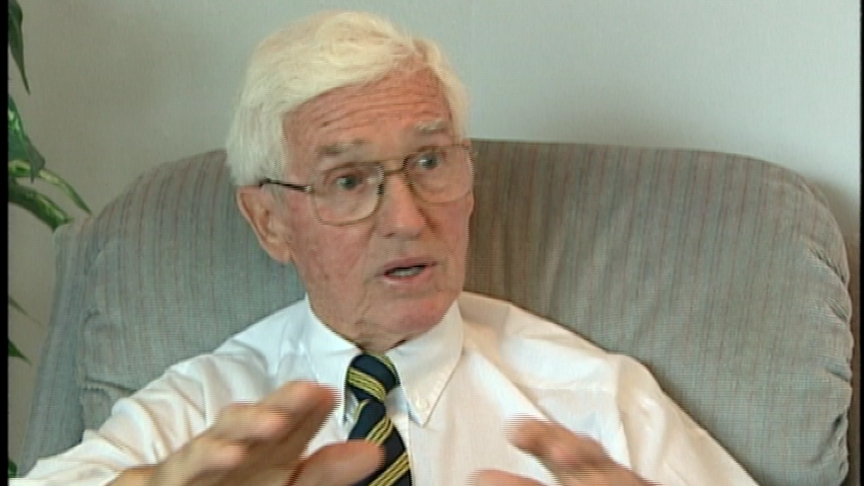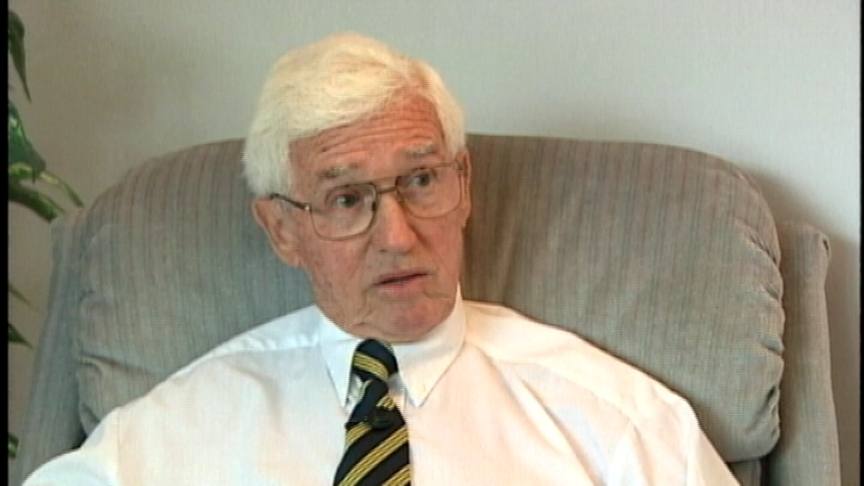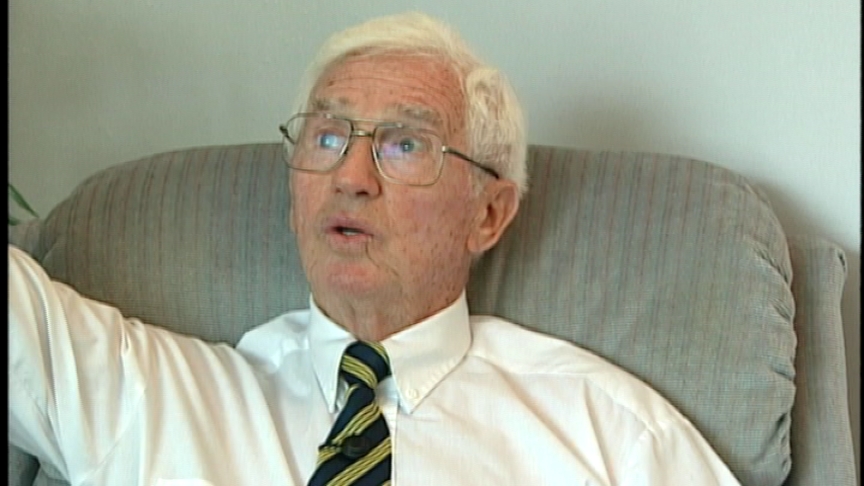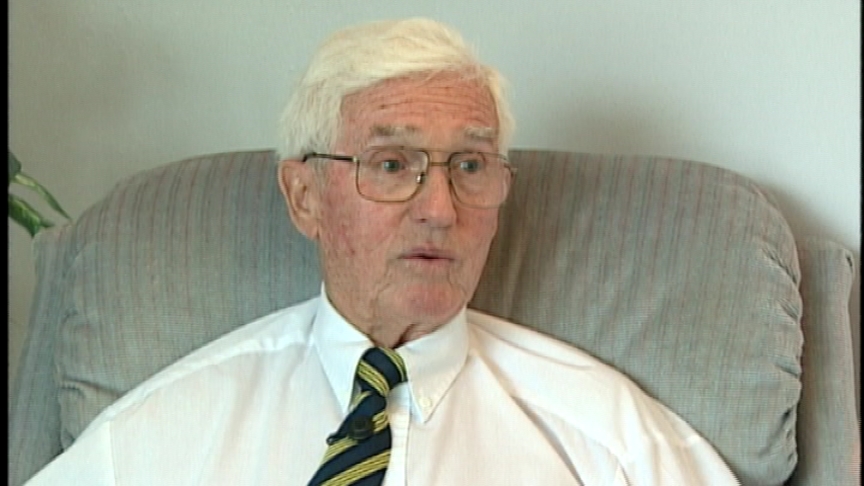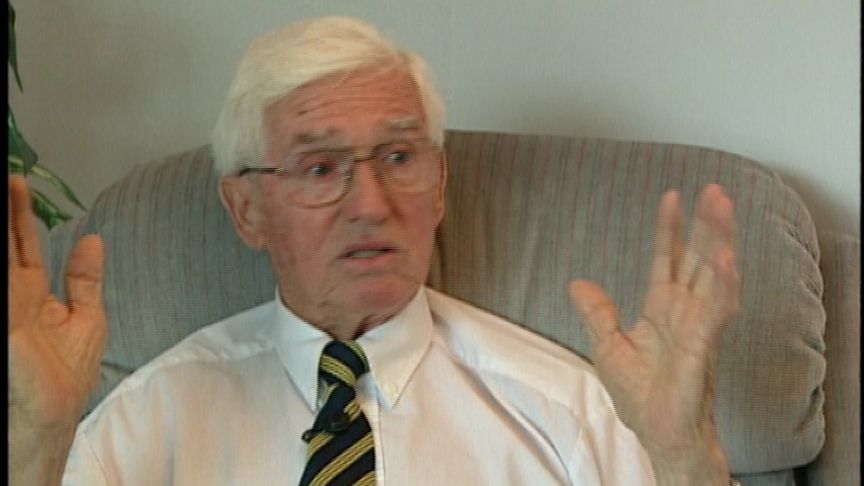They Figured we Hadn’t Registered for the Draft
Heroes Remember
They Figured we Hadn’t Registered for the Draft
Transcript
Description
Mr. Murphy describes two scenarios which demonstrate Canada’s early failure to recognize its Hong Kong Veterans and the trauma that they endured.
Leo Murphy
Leo Murphy was born September 3, 1919 in New Richmond, Quebec, where he grew up and completed his elementary education by 1931. He was one of nine children. Before enlistment he was a day labourer working in a sawmill, construction, excavation, farming, and a lumber camp. Mr. Murphy enlisted with the Royal Rifles on Nov 25, 1940, and took his basic training in Newfoundland and Val Cartier, Quebec. He was overseas for four years, spending all but the first three months as a POW in Hong Kong and Japan. The emotional impact of the Hong Kong deployment started early for Mr. Murphy, when on the same day his brother was killed beside him and he took the life of a Japanese soldier. During his captivity, he suffered from beri-beri, dysentry, pellagra, had his foot crushed in a mining accident, and developed liver problems. At the time of his liberation, he was a mining coal in Omini, Japan, as a slave labourer. Mr. Murphy arrived back in Canada in October, 1945 and was discharged February 5, 1946. From 1947 to 1960, he was employed as a brakeman with the Canadian National Railroad. Mr. Murphy was married on Sept 1, 1947, to Yvette Savoie. He died March 26, 2001.
Meta Data
- Medium:
- Video
- Owner:
- Veterans Affairs Canada
- Duration:
- 3:17
- Person Interviewed:
- Leo Murphy
- War, Conflict or Mission:
- Second World War
- Battle/Campaign:
- Hong Kong
- Branch:
- Army
- Units/Ship:
- Royal Rifles of Canada
- Occupation:
- Infantryman
Related Videos
- Date modified:



